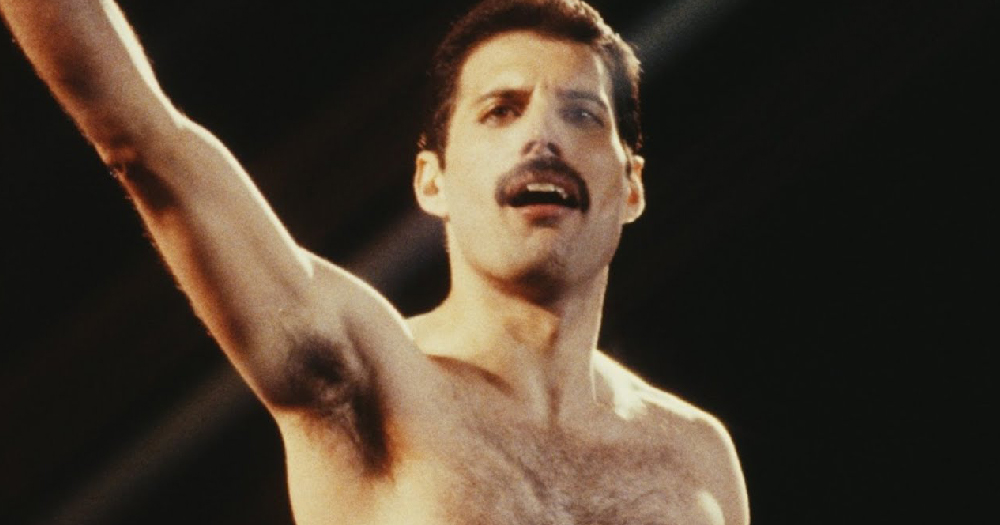The life and legacy of legendary Queen frontman Freddie Mercury continues to inspire countless communities twenty-nine years after his death.
Singer and producer Mercury, pseudonym of Farrokh Bulsara, redefined mass media through his groundbreaking rejection of conventional norms and a trailblazing flamboyant personality. As the lead singer in Queen, he shook the rock world to its core with numerous iconic hits.
Mercury’s unstoppable creativity captured the imagination of generations both past, present, and well into the future. His style and dazzling presence saw him rise to become one of the most influential figures in modern-day culture.
Tributes commemorating Mercury’s passing are blazing across social media. One person wrote, “Freddie Mercury was brave enough to wear outfits that showed us clothing has no gender, when he knew he was gonna be judged. And sadly, there are still some people who are hating on him and others for wanting to express themselves through clothing. This has to stop now.”
Before his death on November 24 1991, Mercury shocked the world once more by revealing he was dying due to AIDS-related complications. He shared in a prepared statement, “I want to confirm that I have tested positive for the HIV virus and that I have contracted AIDS. I have found it appropriate to keep this information confidential until now in order to protect the privacy of those around me.”
“However, the time has come for my friends and fans around the world to know the truth and I hope everyone will join me, the doctors who follow me and those around the world in the fight against this terrible disease,” Mercury further expressed.
24th November 1991: Freddie Mercury, lead singer of Queen and rock legend, dies from AIDS-related complication, aged 45. He was posthumously honoured with a Brit Award in 1992. A tribute concert was also held at Wembley Stadium. #OnThisDay #Queerstory pic.twitter.com/NviGnBTx1t
— Gay Community News (@GCNmag) November 24, 2018
The singer was well known for being deeply private about his personal life towards the press. So for him to publicly open up about his statues was monumental especially during a time when politicians were actively denying the urgency of a crisis that harmed countless LGBTQ+ people.
UK based sexual health charity Terrence Higgins Trust shared on Twitter, “Today we’re remembering the amazing Freddie Mercury, who died on this day back in 1991. Since then, Freddie has inspired so many conversations about HIV with millions being raised for relevant causes in his memory. We miss you, Freddie.”
Today we’re remembering the amazing Freddie Mercury, who died on this day back in 1991. Just a week before #WorldAIDSDay.
Since then, Freddie has inspired so many conversations about HIV with millions being raised for relevant causes in his memory.
We miss you, Freddie. pic.twitter.com/MyEuLNciP8
— Terrence Higgins Trust (@THTorguk) November 24, 2020
In memory of Freddie Mercury, Roger Taylor, Brian May, and their manager Jim Beach launched The Mercury Phoenix Trust to support the fight against HIV/AIDS. They run an annual Freddie For A Day initiative, where people are invited to dress up as the iconic singer in an epic fundraising campaign.
At a 2018 premiere of Queen biopic Bohemian Rhapsody, ACT UP London and the NHS Anti-Swindle Team protested against the film’s depiction of his battle with AIDS. Activist Jeremy Goldstein said, “Freddie ‘Killer Queen’ Mercury was a migrant who died from AIDS and today HIV+ migrants are some of the most oppressed in the HIV/AIDS community. We are here today to highlight the ongoing crisis.”
“At seventeen he and his family became refugees fleeing from the Zanzibar revolution. After an epic career with Queen Freddie sadly died in 1991 his home in Kensington the day after he publicly announced he was living with HIV. We demand that all HIV+ migrants are treated with utmost dignity, that HIV services stop being closed down and an end to all illegal detention of HIV+ migrants,” Goldstein further stated.
© 2020 GCN (Gay Community News). All rights reserved.
Support GCN
GCN is a free, vital resource for Ireland’s LGBTQ+ community since 1988.
GCN is a trading name of National LGBT Federation CLG, a registered charity - Charity Number: 20034580.
GCN relies on the generous support of the community and allies to sustain the crucial work that we do. Producing GCN is costly, and, in an industry which has been hugely impacted by rising costs, we need your support to help sustain and grow this vital resource.
Supporting GCN for as little as €1.99 per month will help us continue our work as Ireland’s free, independent LGBTQ+ media.
